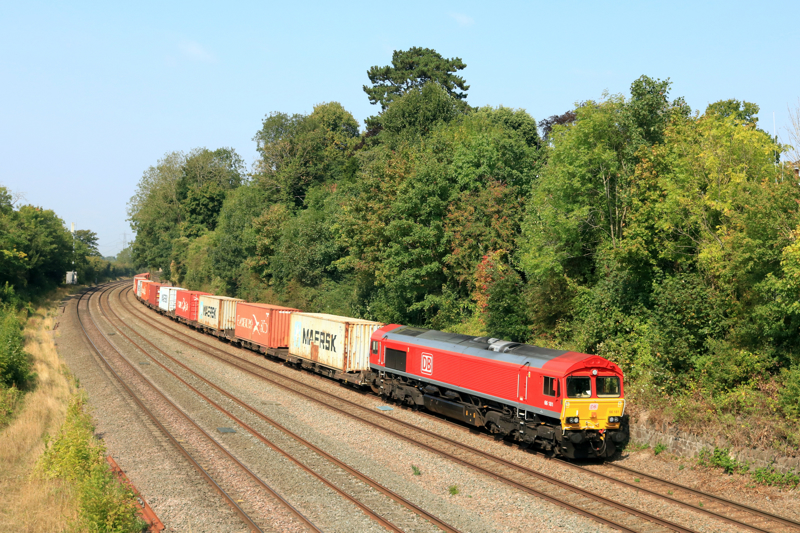
DB Cargo UK has asked drivers if they are willing to transfer to GB Railfreight as it looks for ways to manage a surplus.

DB Cargo UK has asked drivers if they are willing to transfer to GB Railfreight as it looks for ways to manage a surplus.
The company (along with Freightliner and DRS) lost its share of the Network Rail season contract in April, which from August will solely be in the hands of GBRf and Colas.
In a letter update to staff on May 19, DBC CEO, Andrea Rossi, said this “compounded the situation” of surplus drivers.
DBC wrote to drivers based at five hubs in late April saying the loss of Network Rail’s seasonal fleet contract had “compounded” an existing driver surplus issue.
The freight operator has surplus drivers in Scotland (13 across Millerhill and Mossend), North West (ten at Warrington), Hampshire (six at Eastleigh), North Kent (five across Hither Green and Hoo Junction), South Cheshire (two at Crewe), a total of 36.
After discussions with ASLEF and GBRf, DBC then asked drivers from those locations to volunteer switching to its competitor around mid-June.
GBRf had up to 22 vacancies made up of nine from North West, five from Scotland, four from Hampshire and two from both North Kent and South Cheshire to volunteer moving.
Drivers were told: “GBRf have confirmed they will honour all of your current terms and conditions of employment in the event you transfer to them. They have also confirmed you would transfer with continuous service from DBCUK to GBRf. ‘Continuous service’ is defined as railway service with DBCUK and its predecessor companies.”
As of mid-May DBC had not confirmed how many had volunteered, but it’s understood that the company could still be left with a “significant surplus” of drivers. However both companies are “trying as hard as they can” to make the transfer happen, and the decision on the future of drivers could depend on footplate seniority and length of service.
While many drivers are said to understand the situation, ASLEF is concerns about a loss of knowledge within DBC’s driver pool if some are allowed to transfer to GBRf.
Simon Weller, the union’s Assistant General Secretary said: "ASLEF is talking to DB Cargo and GB Railfreight and the union is working to minimise job losses and to try to make sure there is resilience for the future."
In his May 19 update, Rossi, said: “We have made great progress recently transforming DB Cargo UK into a stronger, more profitable company, but to sustain this trajectory we must be agile and ensure our resource levels reflect trading conditions. I recognize that this may be unsettling but to avoid the pitfalls of the past, we have to adopt a more agile, commercial mindset.”
He also told staff the company had been negotiating the potential hiring of some of its Class 66s to GBRf and Colas to help cover the increased seasonal work now facing both companies.
“This decision is based on our desire to ensure that Network Rail, which remains a key customer and stakeholder of ours, has all the resources it requires to keep the network running safely,” he said.
“This is not just in our own interests, but in the interests of all freight and passenger companies and their customers. It also means that we will continue to generate at least some revenue from assets that we invested our money in maintaining.”
Login to continue reading
Or register with RAIL to keep up-to-date with the latest news, insight and opinion.

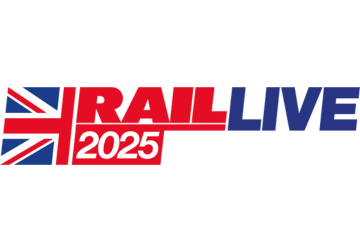
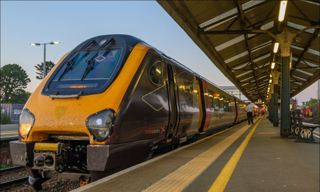
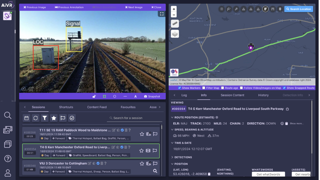
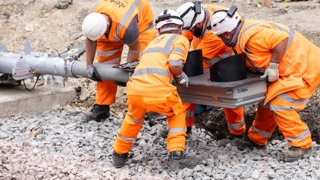
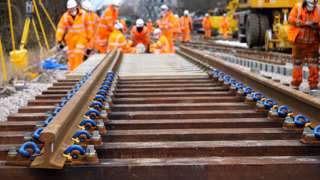










Norman - 27/05/2025 14:14
Rail freight traffic in Scotland has been declining yet there are many destinations with no freight on rail despite poor or even relatively poor road connections . I have long suspected the rail freight companies have little interest in serving any markets north of the Scottish Central belt . Yet Fort William has just the alumina train despite the the A82 is grossly overcrowded and unsuitable for HGVs for much its length. Ditto Aberdeen and Inverness with ZERO rail freight except one Tesco train to Inverness and cement to both cities. Why no attempt by any of the 3 to grow the market.?